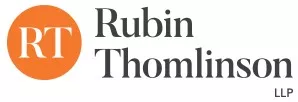- with Inhouse Counsel
- with Senior Company Executives, HR and Finance and Tax Executives
- with readers working within the Accounting & Consultancy, Business & Consumer Services and Healthcare industries
You receive an anonymous complaint through your whistleblowing portal that your CFO is having an affair with a subordinate. Your board receives a complaint that your CEO is creating a toxic work environment. Some of the most challenging complaints for organizations to address are complaints against C-level employees and other members of senior leadership. Whether these complaints are made directly to the board, to HR, or arrive through a whistleblowing portal, those tasked with addressing them must act quickly but thoughtfully to respond in a timely, fair, and confidential manner.
As a workplace investigator with extensive experience conducting investigations into allegations against C-suite and other senior level employees, I have reflected on what makes these investigations unique and, in this blog post, will share some lessons learned.
Why are C-suite investigations different?
Every investigation has its own unique challenges, but investigations into complaints against C-suite employees and other senior leaders typically come with specific issues that organizations must address. Below are some of the considerations that are often at play in these types of investigations.
- Impact: We know that creating a respectful and safe workplace starts at the top, with the tone set by an organization's leadership. Unaddressed allegations of wrongdoing against a senior leader can, therefore, have a significant impact on an organization's culture and on employee trust in an organization's respectful workplace program. This means that it is critical to address complaints against C-level employees and other senior leaders in a fulsome manner.
- Urgency: While all investigations should be conducted in a timely manner, given the potential impact of complaints against senior leadership, organizations often face heightened pressure to complete investigations into allegations against C-level employees and other senior leaders quickly. Moreover, it is not always possible or practicable to impose interim measures – such as a leave or modified duties – on members of senior leadership for a long period of time. This can contribute to the urgent nature of these types of investigations.
- Confidentiality: All investigations come with a risk of confidentiality breaches and, the more people involved in an investigation – whether as parties or witnesses – the more likely it is that someone will be tempted to share confidential information outside of the boundaries of the investigation. This temptation is often higher for investigations into the conduct of C-level and other senior employees since they involve people who are usually widely known within the organization. Additionally, depending on the nature of the organization, there could be public or media interest in a complaint against a senior leader, raising the risk of leaks. This means that these investigations require a particularly sensitive approach to confidentiality.
- Anonymous complaints: Given their high-level positions within an organization, it is not unusual that complaints against C-level employees and other senior leaders are often made anonymously, out of concern (founded or not) about reprisal. Anonymous complaints are particularly challenging to investigate since investigators must consider where to gather evidence from and how to balance conducting a thorough investigation in the absence of a known complainant with maintaining confidentiality.
- Conflicts of interest: A significant question that arises when it comes to investigations into C-level employees and other members of senior leadership is: who will conduct or direct the investigation? Here, organizations have to consider not only actual bias, but also the appearance of bias. If the person conducting the investigation or providing instructions to the investigator reports to the senior-level respondent or is themselves several levels below the respondent in the organization's hierarchy, there is a risk of actual or potential bias since this person may be concerned about the consequences if the respondent is found to have engaged in misconduct.
How should organizations handle C-suite investigations?
In light of the challenges detailed above, there are several considerations that organizations should keep in mind when faced with a complaint against a C-level employee or other member of senior leadership.
- Don't rush: Given their heightened urgency, it is tempting for organizations to rush through these types of investigations in order to reach a resolution. But, rushing often leads to mistakes, such as not interviewing relevant witnesses or not conducting fulsome reply interviews with the parties. These mistakes can be costly if the investigation does not stand up to legal scrutiny. So, tempting as it may be to rush, when a complaint of this nature is received, organizations should proceed carefully, ensuring that the procedural steps that they would take in any other investigation are followed.
- Keep it neutral: Given the potential consequences of a finding of misconduct on the part of a C-level employee or other member of senior leadership, an organization could be inclined to regard a complaint as unlikely to be true, particularly if it comes from an anonymous source. Equally, an organization may want to set a strong example of its commitment to respect in the workplace and want to take swift action in response to a complaint, without a full investigation. However, as with any investigation, it is important not to make assumptions about what the outcome is likely to be, and to make decisions from a place of neutrality.
- Consider going external: Even if your organization has a robust and sophisticated internal investigation program, given the sensitivity and potential for conflicts of interest with these types of investigations, an external investigation is often beneficial when it comes to complaints against C-level employees and other senior leaders.
The content of this article is intended to provide a general guide to the subject matter. Specialist advice should be sought about your specific circumstances.


